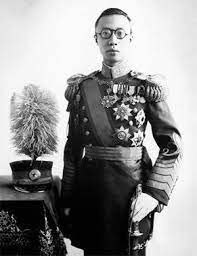Shao Li-tzu (1882-29 December 1967), teacher and journalist who became a veteran leader of the Kuomintang. He served as governor of Shensi in 1933-36 and as ambassador to the Soviet Union in 1940-41. After 1949 Shao held a variety of posts in the People's Republic of China. The son of a government official, Shao Li-tzu […]





